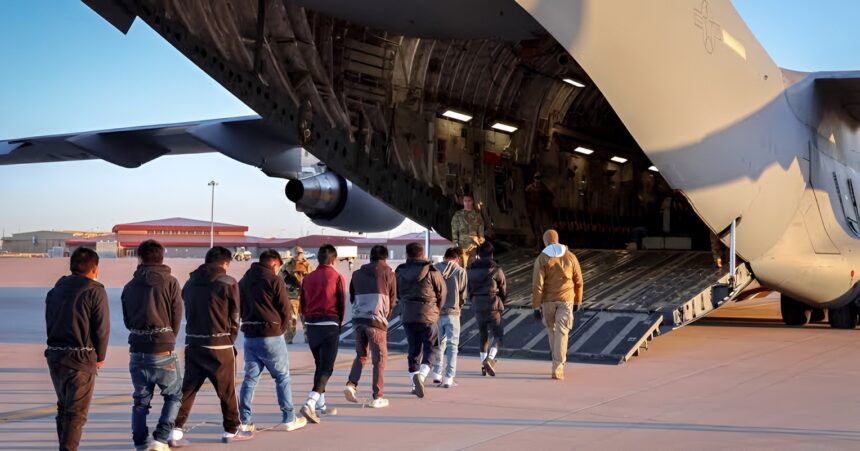The Kingdom of Eswatini has publicly contradicted claims by the United States government regarding the U.S. deportation of five third-country nationals.
The government of Eswatini asserted that it is committed to its repatriation policy, vowing to return the migrants to their countries of origin.
The five deportees, from Vietnam, Jamaica, Laos, Yemen, and Cuba, were flown to Eswatini in what the U.S. Department of Homeland Security (DHS) described as the first “third-country” U.S. deportation since a recent Supreme Court ruling upheld the policy.
According to DHS, all five individuals had completed prison sentences in the United States for serious criminal offenses. The department said they were sent to Eswatini after their home governments allegedly declined to accept them.
“The flight included individuals whose own countries refused to take them back,” wrote Tricia McLaughlin, Assistant Secretary at DHS, in a post on X (formerly Twitter) Tuesday night.
Eswatini, however, has clarified that it is holding these individuals in isolated prison units temporarily and will work with international partners to facilitate their return home.
Eswatini’s acting government spokesperson, Thabile Mdluli, made this known in a press statement issued to address widespread domestic concern about the deportations.
She emphasized that the Eswatini repatriation policy prioritizes collaboration with the United States and the International Organization for Migration (IOM) to ensure the migrants are sent back to their home countries.
“The five prisoners are in the country and are housed in correctional facilities within isolated units, where similar offenders are kept.
“The governments of Eswatini and the United States, together with the International Organization for Migration, will facilitate the transit of these inmates to their countries of origin,” Mdluli said.
In another fresh twist, the IOM contradicted Eswatini’s statement, clarifying that it had no role in the migrants’ removal from the United States and had not been asked to assist with their repatriation.





